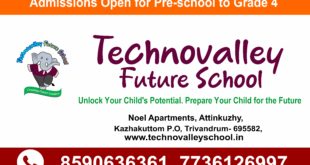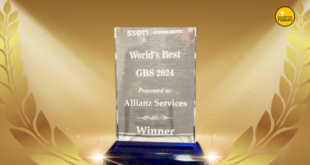 TechnoparkToday.com>>February 23, 2013 – International Centre for Free and Open Source Software (ICFOSS) as part of its pre-incubation activities had organized a two-day workshop on Open Source Hardware called “Building Things That Think†at Technopark Trivandrum. The workshop was conducted by Dr. Beth Kolko, faculty of University of Washington.
TechnoparkToday.com>>February 23, 2013 – International Centre for Free and Open Source Software (ICFOSS) as part of its pre-incubation activities had organized a two-day workshop on Open Source Hardware called “Building Things That Think†at Technopark Trivandrum. The workshop was conducted by Dr. Beth Kolko, faculty of University of Washington.
Over 50 students from various engineering colleges and professionals participated in this workshop. Dr. Beth Kolko took the participants through experimentation and exploration of how to build things by combining usefulness, art, science and whimsy to create combinations of software and hardware. She started from the beginning to help them grasp the basic elements like soldering, and making interesting art pieces using LED lights, copper tapes and batteries and thus made them experience all backgrounds to hands-on technical skills. She worked with the participants on three projects: preparing paper craft art using LED lights and paper; then use LEDs and textiles to explore the basics of wearable computing and e-textiles and work with open hardware prototyping boards and sensors (potentially mobile phones) to give an introduction on the many possibilities of combining code and hardware.
“The activities in the workshop were adapted from a project called Hackedemia and thus introduce the concept of Open Source Hardware to the participants. Open source hardware movement besides assembling electronic and mechanical devices with widely-available components, also represents peer production in an open community environment where innovation and collaborative design is enabled and encouraged. Such innovation may also have opportunities for start-ups which can provide commercial services based on these concepts.†Said Dr. Beth Kolko
Satish Babu, Director – ICFOSS said, “Open source hardware is hardware whose design is made publicly available so that anyone can study, modify, distribute, make, and sell the design or hardware based on that design. Open source hardware gives people the freedom to control their technology while sharing knowledge and encouraging commerce through the open exchange of designs.
The participants of the workshop has found the two-day sessions very interesting as they were taken through basic engineering aspects through very simple techniques and activities at the same time giving an opportunity on hands-on experience to understand the various concepts.†Satish Babu added.
Dr. Beth Kolko is a faculty at Department of Technical Communication at the University of Washington, and also a Fellow at the Berkman Center for Internet and Society at Harvard University.
 TechnoparkToday.com – Techies News, Jobs, Events & Lifestyle! Technopark News Jobs & Lifestyle!
TechnoparkToday.com – Techies News, Jobs, Events & Lifestyle! Technopark News Jobs & Lifestyle!




